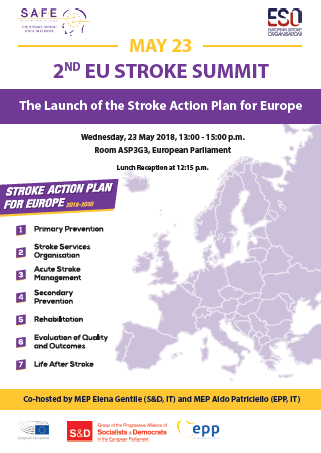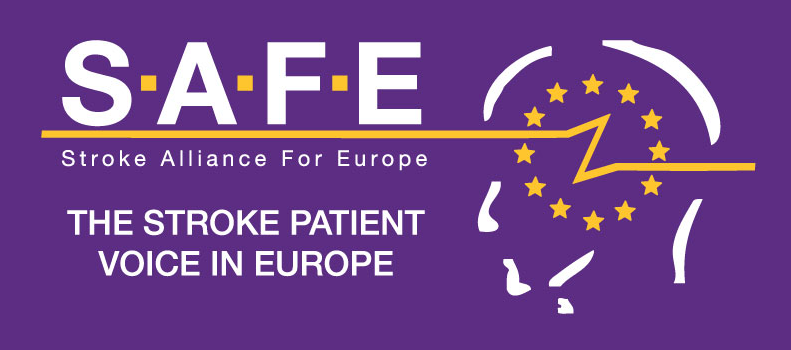
May 17, 2018
Building on the preceding Helsingborg Declarations of 1995 and 2006, the European Stroke Action Plan was launched today at ESOC 2018. It creates an aspirational framework to drive healthcare policy, research priorities, local stroke management and patient-focused care to meet the need demonstrated in the ESO/SAFE Burden of Stroke report, with €45 billion direct and indirect healthcare costs each year, a 34% increase in strokes by the year 2035 due to the ageing population, and huge variations in the level of stroke care available across Europe.
Stroke Action Plan Chair, Prof Bo Norrving, said: “Resources for stroke do not match the societal impact and burden of the condition. ESO has joined forces with SAFE to define the priorities for stroke care and research across Europe over the next decade.”
(more…)

May 16, 2018
WAKE-UP has provided a new treatment option for stroke patients if it is not known when their stroke started.
Up to 20 per cent of stroke patients wake up in the morning with stroke symptoms. This means that the time when their stroke started is unknown and so they are not routinely eligible for clot-busting treatment (thrombolysis) with drugs such as as alteplase, which is only approved to be used within 4.5 hours after the start of stroke symptoms. Every year about two million patients have a stroke in the EU, including approximately 400.000 patients with ‘wake-up- stroke’ or who otherwise have unknown time of symptom onset.
Now, the WAKE-UP study has revealed for the first time that selecting patients for treatment based on what is shown in their MRI brain images can be used to decide if they get thrombolysis. By comparing different images from the MRI examination, clinicians can now deduce when a stroke is likely to have started, and whether a patient is likely to benefit from thrombolysis. (more…)

May 14, 2018
Posted on Friday May 11, 2018 by The Foundry Healthcare
I am a child of immigration. Both my parents came to the UK for their education, and because of this the value and importance of education has been a strong influence in my life. I believe that education can equalise the playing field, it can transform the potential of anyone and can create real change. To me the Stroke Support Organisation Faculty Tool, SSOFT, incorporates these important aspects; equal access, increased potential and the means to change things for the better. (more…)

May 11, 2018
Stroke Action Plan for Europe 2018-2030
Basel and Brussels, 11 May 2018 – Just one year after signing a Memorandum of Understanding, the European Stroke Organisation (ESO) and the Stroke Alliance for Europe (SAFE) are proud to present the “The Stroke Action Plan for Europe 2018-2030”, with the aim of significantly improving stroke care and Life after Stroke for the millions of people expected to have strokes over the next 12 years.
ESO and SAFE will present the Stroke Action Plan for Europe to the medical world for the first time in a joint session at ESOC in Gothenburg on Thursday, 17 May. In addition to speakers from ESO and SAFE, the World Health Organisation (WHO) perspective on Joining Forces in Combating Stroke in Europe will be presented. (more…)

May 8, 2018
The Stroke Alliance for Europe (SAFE) and its members from 30 European countries are committed to raising awareness of stroke
Brussels, 8th May 2018- This May, SAFE and its members have many activities to be proud of. We have managed to successfully complete a joint project with the European Stroke Organisation (ESO), the Stroke Action Plan for Europe 2018-2030.
The project will first be presented to the medical world at this year’s European Stroke Congress in Gothenburg, Sweden on Thursday, 17 May 2018.
After that, the main recommendations in the Stroke Action Plan will be launched to politicians and the public at the European Parliament on 23 May at the 2nd EU Stroke Summit. (more…)








